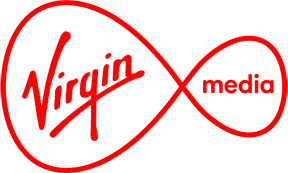The following information is a UPC Ireland Press release from before the move to Virgin Media
Learning lessons from UK’s digital success is important for Irish competitiveness
UPC’s Conor Harrison tells British Irish Chamber
Dublin, Friday 27th February, 2015- The availability of high speed and high capacity broadband is the defining characteristic of a globally competitive economy in this digital age, said Conor Harrison, Vice President of Networks at UPC Ireland, at the British Irish Chamber of Commerce International Conference in Dublin today.
The annual conference, now in its third year, brings together leaders from the worlds of politics, private business and state agencies to assess the prospects for closer co-operation between Britain and Ireland. “Broadband speed alone doesn’t guarantee economic growth,” said Harrison. “Penetration, price and productivity are critical to converting the benefits of access to superfast broadband into economic value.”
Drawing comparisons between Ireland and the UK, Harrison said that every €1 invested in broadband infrastructure yields anything between €5 and €20 of wider economic value.
“The value of Ireland’s internet economy is currently estimated at €8.4bn or 5% of GDP and this is projected to grow to €21.1bn or 10% of GDP by 2020. While this may seem bullish it’s worth noting that the UK digital economy, which is considered to be the best performing among the G20 nations, is already estimated to be currently worth €110bn per annum and this is projected to constitute 10% of GDP by 2016. So our forecast for Ireland by 2020 may in fact prove conservative if can continue to close the gap with our nearest neighbour.”
“In the Republic, broadband device usage is doubling every three years. Irish households have an average of 5 internet enabled devices in the home. In the UK this number is 10 and this is forecasted to rise to 15 by 2019. Northern Ireland has one of the highest ownerships of tablet devices in the UK with 43% of the population owning one.”
“Of course, while broadband connections are essential, simply being connected to the Internet isn’t enough. We all need to focus on the benefits of ‘digitisation’ that can be gained if we use the Internet to create societal benefit, economic productivity across Ireland.”
“A lack of digital literacy is holding back many SMEs which are the bedrock of our economies both in Ireland and the UK. Only 75% of Irish enterprises have a website which means that as many as 47,000 SMEs are missing out on simply being identifiable on the web. In the UK this number is closer to 80%, but only 20% of these businesses actually sell through their website. Encouragingly, CSO Ireland figures indicate that 24% of Irish enterprises already use the internet for a proportion of their sales via e-commerce. The EU average is 17%, so Ireland is doing comparatively well."
“Today in Ireland and the UK over 33% of the population have a high speed connection, over double the percentage 2 years ago and now well above the EU average of 18%, providing a strong foundation for us all to exploit the growing digital economy,” said Harrison who also told the meeting that UPC is offering unlimited 240 Mbps broadband to customers."
Referring to UPC’s sister company in the UK, Virgin Media, Harrison cited an economic study by consulting firm Oxera who said that a recent £3bn investment announcement by Virgin Media to extend the reach of its network would result in an £8bn of economic activity and consumer benefit to the UK economy.
“Correlating that rate of economic conversion roughly into an Irish context would indicate that UPC Ireland’s recent network investments of over half a billion euro to date will create a benefit of some €1.3 Bn to the Irish economy.”
On consumer activity, he said Irish online consumers currently spend approximately €1,300 annually per head of population a year and this is projected to at least double by the end of the decade.
“If we look at our nearest neighbours the UK, figures show they already spend more per year online than any other developed country at €2,700 per head.”
“The UK is now the 3rd largest market for retail e-commerce behind only China and the US. Many UK companies have focused or restricted, their activities to the domestic market. That is understandable given the size of the market but there are too few UK digital ‘pure plays’ with a business model that is exportable to other markets, leaving their revenue growth tied to domestic fortunes.
“Irish businesses need to take note of that concept of being ‘digitally exportable’.”
“There is significant upside for the Irish economy beyond current estimates if we are to embrace the adoption of e-commerce. However, we also need to ensure that Irish businesses are geared up to take advantage of this opportunity including competing with UK and offshore businesses.”


